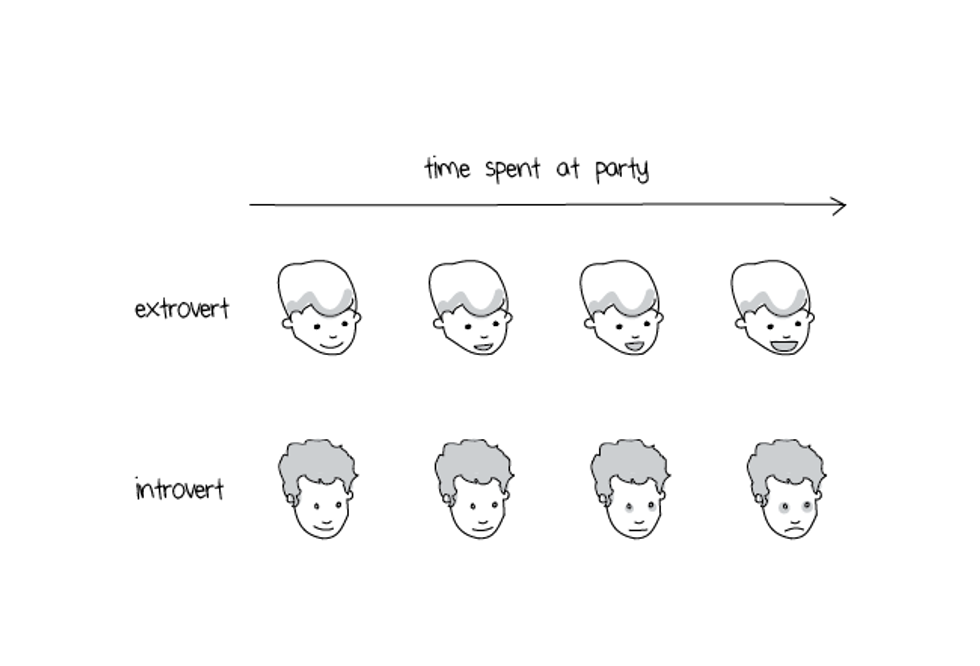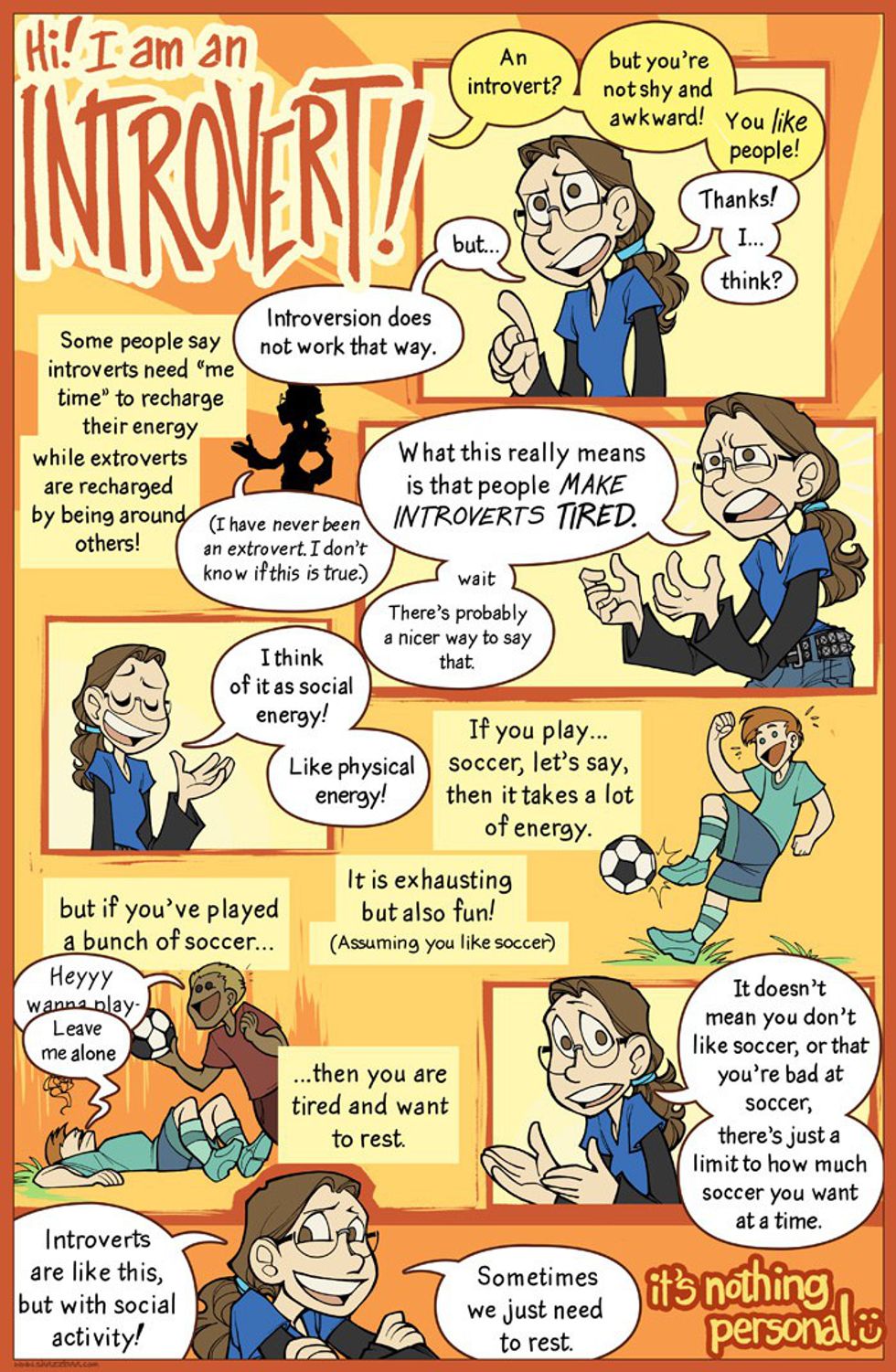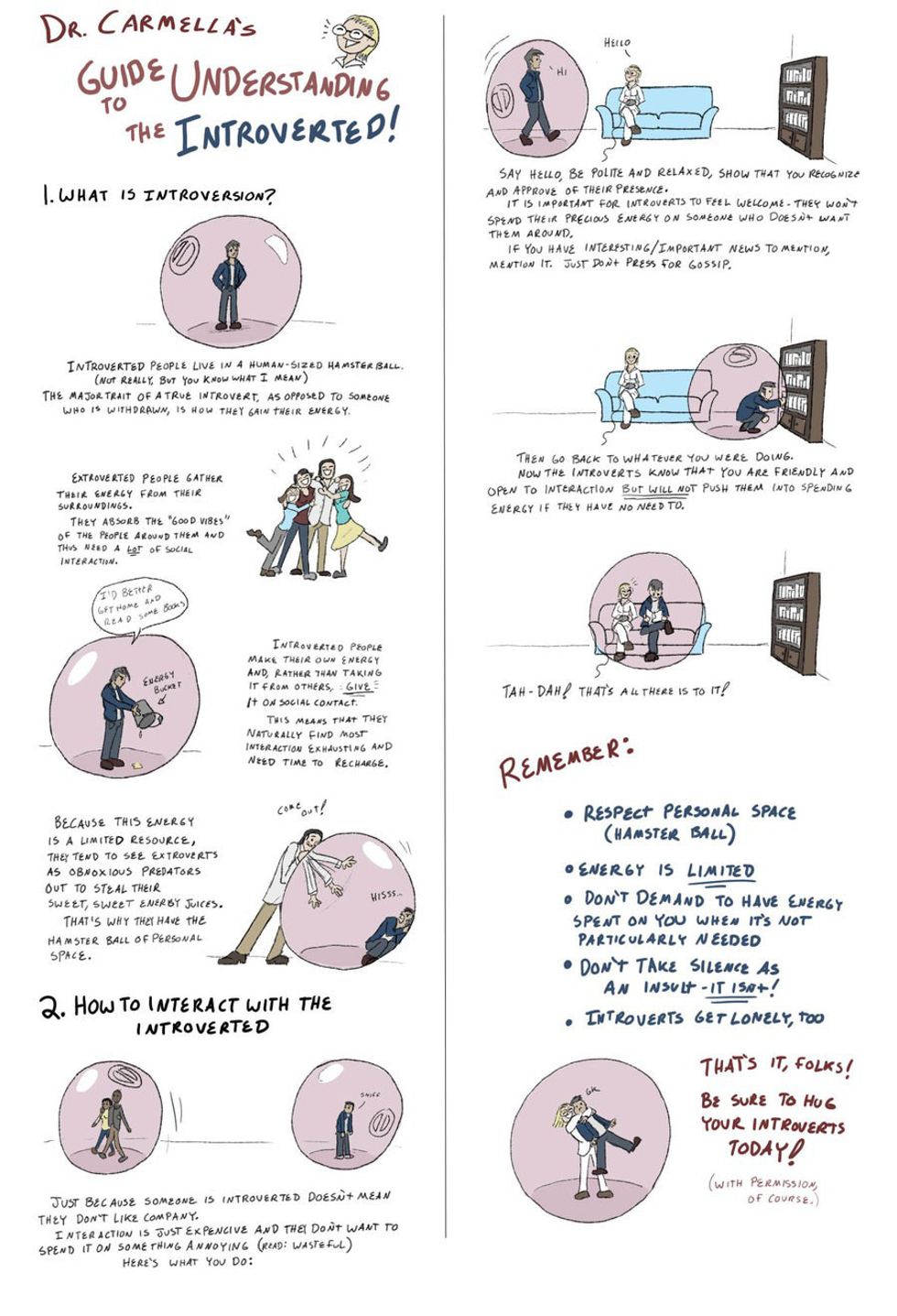Many people think they know what the word "introvert" means. Most people actually don't. In fact, introversion is one of the most misunderstood terms in our culture. Merriam-Webster's definition is merely: "one whose personality is characterized by introversion; broadly." Essentially, "a person predominantly concerned with their own thoughts and feelings rather than with external things."
Most people believe that an introvert is merely a shy person. While this is sometimes part of the definition, it is not accurate as it does not portray the full meaning of the word. People are complicated and complex beings, nobody disputes that. But what people don't realize is introversion is just as complex.
Recommended for you
Introversion truly is just using up energy when socializing, while extroversion is getting energy while socializing. As The Gifted Introvert puts it, "The main difference between introverts and [extroverts] is the source of their energy. [Extroverts] get energy from people and objects outside themselves whereas introverts gain energy from within themselves."
Susan Cain states, "It's how you respond to stimulation, including social stimulation. So introverts prefer lower-stimulation environments, that's where they feel at their most alive. Whereas extroverts really crave stimulation in order to feel at their best. It's important to see it this way because people often equate introversion with being antisocial, and it's not that at all – it's just a preference."
Shyness, she states, "is about the fear of social judgments – at a job interview or a party you might be excessively worried about what people think of you. Whereas an introvert might not feel any of those things at all, they simply have the preference to be in a quieter setting. And an example of this is Bill Gates, who is often described as introverted and comes across as quite private – but you don't get the feeling that he is very fazed about what people think about him. You don't imagine him sitting up at night worrying about that. In practice many introverts are also shy, but many are not."
I am an introvert, and I love being around people. But because I use up my energy talking to people, I am more selective about who I choose to spend it with. A big misconception about introversion is that it's just shyness. It's not. Huffington Post says it best: "Although introverts do generally need — and enjoy — more solitude than their extroverted counterparts, the idea that introverts are antisocial or don’t want the company of others is completely false. They just tend to enjoy social interaction in a different way than extroverts do."
There has even been research that showed that introverts work better in groups than extroverts do. Introverts are merely different than extroverts — not better or worse. Unfortunately, a lot of people assume that introverts are lonely or sad because we prefer to be alone. That is not the case. We like being alone, and having times to recharge actually improves our mood. Also, recharging time doesn't always necessarily mean alone time, just quiet time. I love being with my partner, but sometimes it gets tiring to talk, so we just watch Netflix or read together. This works as my recharge time, too. (Though normally it has to be with someone in my inner circle — someone I trust and can be myself around. Otherwise I expend too much energy trying to portray my social self).
It's actually not easy to tell if someone's introverted unless they tell you. Some introverts follow the stereotypes, but others don't. Same with extroverts. And even if they tell you, you might not fully understand. In the early stages of our relationship, my partner noticed that I would get quieter as the day or the occasion wore on, and would constantly ask me what was wrong. What he didn't understand was that I was losing my energy, but I still enjoyed the company.
Unfortunately, because extroversion is seen as the norm, many introverts get told to "socialize more" and "get out there." Introverts tend to think that there's something wrong with them. There is nothing wrong with introverts, they just process information differently than extroverts. School doesn't always help, according to Cain: "You can see it if you watch preschool children – grown-ups will repeatedly remark upon quieter children. 'Oh isn't she quiet? Isn't she shy?' As soon as they get to school they will be repeatedly encouraged to join group activities, even if they would prefer not to. It's all very well-meaning but it has the cumulative effect of telling the child that their natural preferences for how they spend their time are not valid."
There are many different introverts, just like there are many different extroverts. I just hope this has helped some people realize that either way is okay. (There's even ambiverts, but that's a whole 'nother story).





















